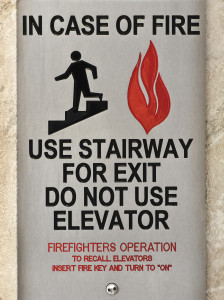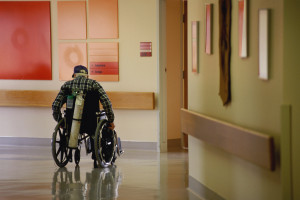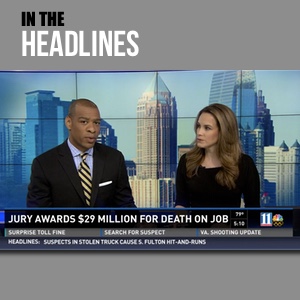 The Beverly, MA Police Department outlines major factors in shopping mall crime and prevention strategies to assist shopping center owners in making malls more secure for patrons:
The Beverly, MA Police Department outlines major factors in shopping mall crime and prevention strategies to assist shopping center owners in making malls more secure for patrons:
Factors Affecting Crime in Malls
Shopping mall crime problems tend to occur in predictable patterns that depend on the following:
- The location of the mall – because they were built in middle-class affluent suburbs and were accessible only by motor vehicle, older malls tended not to attract great numbers of crime-prone groups. As demographics change and crime moves out to the suburbs form the inner city, crimes in and around shoppin g malls have increased.
- The design of the mall, its grounds and facilities – design is often key to property and nuisance crimes in and around shopping malls. Nuisance behavior is most frequent near high-activity spots that attract juveniles or areas where non-buyers hang out. Thefts occur more frequently in busy stores with easy access.
- CAP Index – The CAP Index is a private organization that can provide a crime vulnerability assessment for any location in the United States and Canada. This vulnerability assessment incorporates a wide variety of information from neighborhood demographic and physical housing data, National Crime Surveys, local police data and company crime reports to provide a forecast intended to indicate the likelihood of crimes occurring in any location.
CAP Index scores are scaled so a value of 100 is equal to the national, state and county average. Thus, a CAP Index of 200 is twice the average.
In determining appropriate security measures, shopping mall management should be aware of the CAP Index score for their location. Research data indicates that 65% of shopping malls are located in areas with above average crime risks. As many as 25% of shopping malls are in areas having three times or more the national crime risk.
For more information about CAP Index and how to obtain a crime vulnerability assessment for a specific location, see their Internet website at www.capindex.com.
Crime Prevention Strategies for Shopping Malls
There are numerous crime prevention strategies that can serve to make commercial shopping malls safer and more secure. These strategies include the following:
- Security Patrol – Provide ample uniformed security officers to patrol both the interior and exterior of the mall in well-marked, high-profile vehicles. The security staff either contract or in-house, may be augmented by off-duty sworn police officers.
- Escorts – Provide escort service to both patrons and employees to their motor vehicles, particularly during late-night hours of darkness.
- Community Policing Substation – In some communities, community policing substations have been located in shipping malls.
- Exterior Lighting – Provide adequate exterior lighting (3-5 footcandles) in all parking and exterior areas associated with the shopping mall. A reliable lighting inspection and replacement program should also be in place.
- Placement of Public Restrooms – Unfortunately, shopping malls frequently place public restrooms at the end of long service corridors in less desirable space. Isolation makes mall restrooms possible sites for anything from robbery to sexual assault. Mall maintenance or housekeeping personnel should be instructed to be in the restrooms every 15-30 minutes, and keep log sheets showing the frequency of these visits. In addition, mall security officers should also visit the restrooms periodically. A CCTV camera may be installed to monitor the corridors leading to the public restrooms, especially if the corridors twist and turn. Convex mirrors at corridor intersections can help mall patrons see around corners before they get there.
- Bicycle and Mounted Patrol – For purposes of visibility and accessibility, some shopping malls have their security officers patrol the parking areas and grounds on bicycles. A small number even have horseback mounted security patrols.
- Rooftop Patrol – Particularly during holiday shopping periods, when theft from motor vehicles tend to increase, shopping malls may station security or police officers on the building roof with binoculars.
- Shoplifting Awareness Training – The shopping mall may provide or sponsor shoplifting awareness and prevention training for its tenants and their employees.
- Exercise Walkers – Enclosed shopping malls often attract persons who want to walk within the confines of the mall for purpose of exercise. This practice should be encouraged, particularly during hours of least activity within the mall.
- Use of CCTV – Closed-circuit televisions cameras can be used to monitor parking areas and common areas. The Mall of America employs approximately 130 CCTV cameras monitored by two persons at all times.
- Emergency Phones or Call Boxes – Shopping malls may provide highly visible emergency phones or call boxes located in parking areas and the mall itself.
- Volunteer Patrol – A few shopping malls have developed volunteer citizen patrols to assist mall security or volunteer parents to work at the shopping malls on Friday and Saturday nights to interact with youth.
- Wayfinding Signs – Signs should be placed along shopping mall ring roads to assist patrons in locating parking that is closest to their destination.
Shopping Mall Patron Rights
Shopping mall and parking lot owners have a responsibility to protect patrons legally on the premises from any foreseeable harm. Should they fail in this duty, victims may elect to seek justice and pursue a legal claim for any injuries or wrongful deaths, which occur as a consequence.
We’ve Recovered Millions for Victims of Security and Safety Negligence…Contact us Now for a Free Consultation.
 The Murray Law Firm has an extensive and successful record representing victims of property security and safety negligence. We have recovered millions of dollars for our Clients, and we recently obtained a $29.25 million dollar verdict for a victim of an unsafe property. We offer our legal assistance, if desired.
The Murray Law Firm has an extensive and successful record representing victims of property security and safety negligence. We have recovered millions of dollars for our Clients, and we recently obtained a $29.25 million dollar verdict for a victim of an unsafe property. We offer our legal assistance, if desired.
We represent our Clients on a contingency agreement, which generally means that no fees or payments are owed until and unless we recover. Anyone seeking further information or legal representation is encouraged to contact us via e-mail (click here) or by telephone at 888.842.1616. Consultations are free and confidential.
Choosing the Right Attorney
Selecting the right attorney for you or your family is highly important. You must feel confident that the attorney you hire has a complete understanding of the law applicable to your particular case, and has successful experience in handling such cases.
Important: Do not hire a lawyer who has violated the Rules of Professional Conduct!!!
You should not hire an attorney who calls you or visits you unsolicited, or anyone that contacts you directly to offer legal services. This activity is strictly prohibited by Rule 7.3 of the American Bar Association (ABA) Model Rules of Professional Conduct, which states as follows:
 A LAWYER “SHALL NOT” CONTACT A PROSPECTIVE CLIENT THROUGH A “LIVE TELEPHONE” OR AN “IN-PERSON” VISIT.
A LAWYER “SHALL NOT” CONTACT A PROSPECTIVE CLIENT THROUGH A “LIVE TELEPHONE” OR AN “IN-PERSON” VISIT.
– RULE 7.3, ABA MODEL RULES OF PROFESSIONAL CONDUCT.
If an attorney, or someone acting on behalf of an attorney, contacts you in this manner, that attorney is in violation of this Rule. This unethical and unprofessional activity on the part of the lawyer is good sign that you should stay away. It is imperative that you are represented by an attorney who is capable of advocating for you within the confines of the law, and an attorney who fails to abide by the Rules of Professional Conduct is probably not the best fit. In fact, any such attorney should be immediately reported to the local State Bar Association. If you have been contacted in such an unsolicited manner, contact us and we’ll assist you in filing a report.
Contingency Fees Disclaimer: “Contingent attorneys’ fees refers only to those fees charged by attorneys for their legal services. Such fees are not permitted in all types of cases. Court costs and other additional expenses of legal action usually must be paid by the client.”
 The Legal Herald
The Legal Herald




 The Murray Law Firm has recovered millions of dollars for victims of unsafe properties, and recently obtained a $29.25 million dollar verdict for one of our Clients.
The Murray Law Firm has recovered millions of dollars for victims of unsafe properties, and recently obtained a $29.25 million dollar verdict for one of our Clients. Many nursing home residents are unable to protect themselves in the event of an emergency. As such, it is crucial that nursing home owners and staff prepare by implementing proper fire detection and protection measures as well as a detailed emergency evacuation training program.
Many nursing home residents are unable to protect themselves in the event of an emergency. As such, it is crucial that nursing home owners and staff prepare by implementing proper fire detection and protection measures as well as a detailed emergency evacuation training program. The Murray Law Firm has an extensive and successful record representing victims of property negligence. We have recovered millions of dollars for our Clients, and recently obtained a $29.25 million dollar verdict for a victim of an unsafe property. We offer our legal assistance, if desired.
The Murray Law Firm has an extensive and successful record representing victims of property negligence. We have recovered millions of dollars for our Clients, and recently obtained a $29.25 million dollar verdict for a victim of an unsafe property. We offer our legal assistance, if desired.